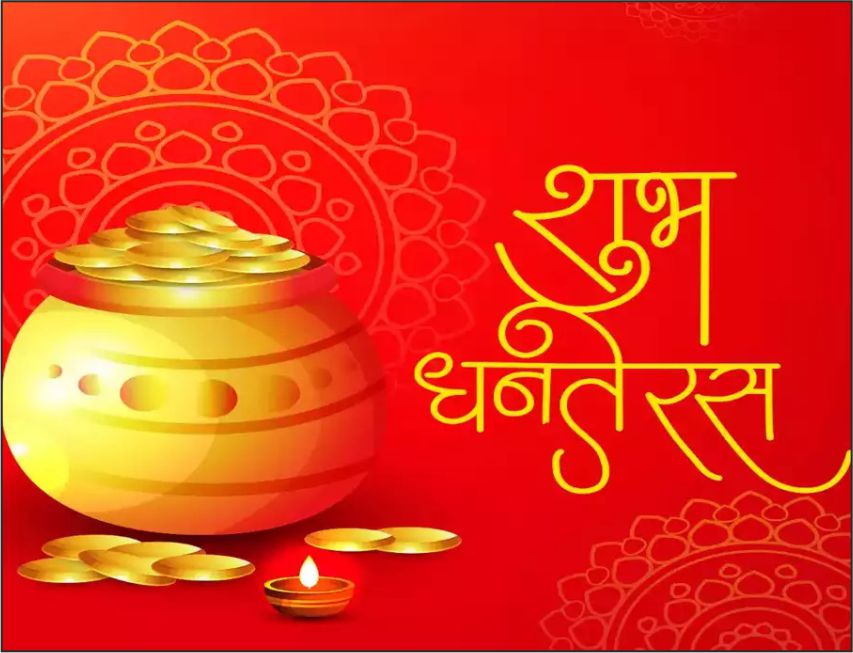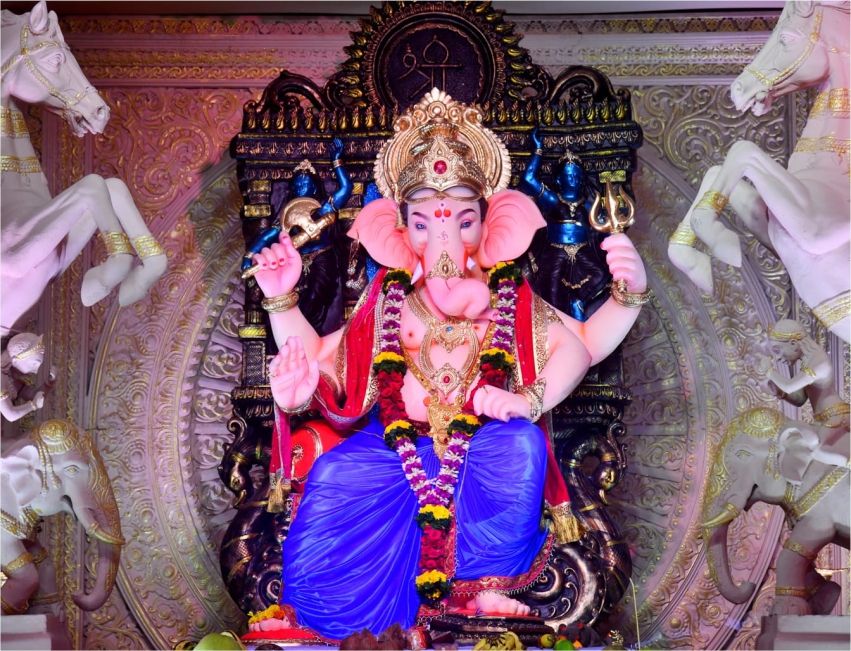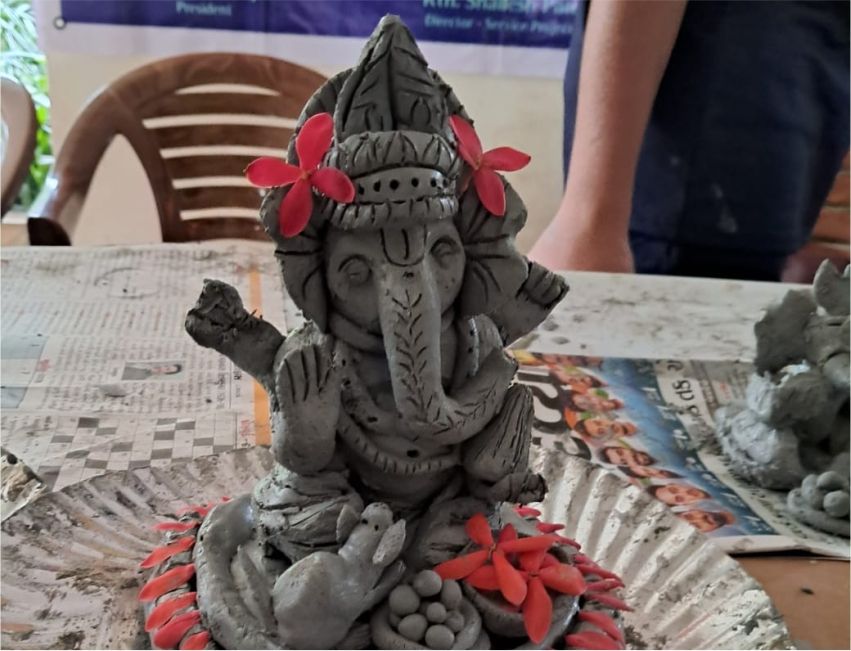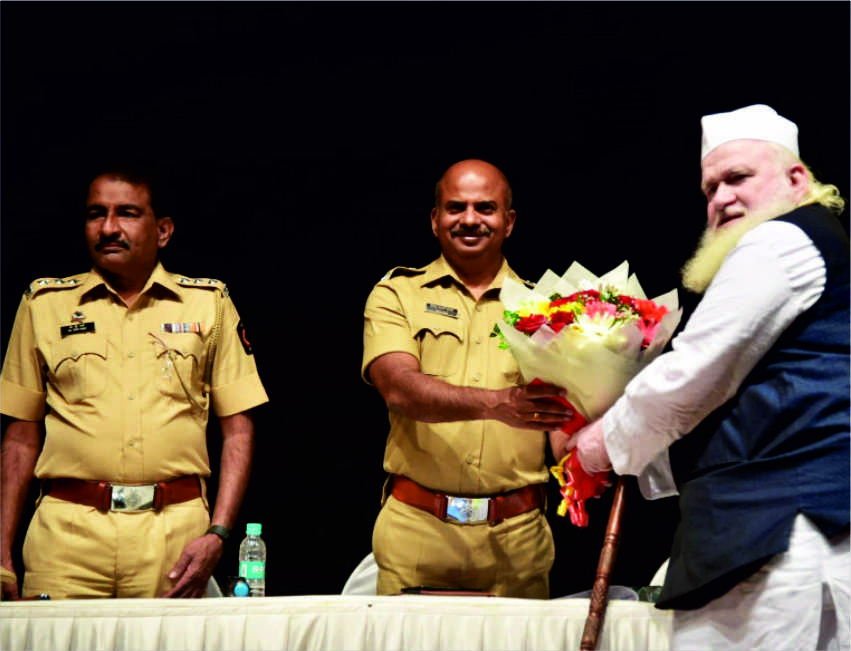Know why Dhanteras is culturally significant for Hindus

- Christopher Rodrigues
- 09 Nov, 2023
Dhanteras is a popular Hindu festival celebrated in India, two days before the festival of Diwali. It is also known as ‘Dhanatrayodashi’ or ‘Dhanvantari Trayodashi.’ The word ‘Dhanteras’ is derived from two words: ‘Dhan,’ which means wealth, and ‘Teras,’ which means the thirteenth day.
Dhanteras is considered the day when Goddess Lakshmi first appeared and is worshipped to invoke her blessings for wealth, fortune, and prosperity. People light oil lamps and decorate their homes to welcome her.
Dhanteras holds significant religious and cultural importance in India, and its significance is rooted in various legends and beliefs. Here are some key aspects of the significance behind Dhanteras:
Welcoming Wealth and Prosperity: Dhanteras marks the beginning of the five-day Diwali festival. On this day, people worship and seek the blessings of Goddess Lakshmi, the deity of wealth and prosperity. The word "Dhanteras" itself is derived from "Dhan," which means wealth, and "Teras," which means the thirteenth day. It is believed that by worshipping Goddess Lakshmi on this day, individuals can invite wealth and financial well-being into their homes and lives.
Commemorating divine births: Dhanteras is associated with two important divine births. According to Hindu mythology, it is believed that on this day, Lord Dhanvantari, the physician of the gods and the harbinger of Ayurveda, appeared during the churning of the cosmic ocean. People pay homage to Lord Dhanvantari to seek blessings for good health and well-being. Additionally, Goddess Lakshmi, who is believed to have emerged from the same churning of the ocean, is also worshipped on this day.
Dhanteras is also associated with the appearance of Lord Dhanvantari, who is revered as the god of medicine and the physician of the gods. It is believed that during the churning of the ocean, Lord Dhanvantari emerged holding a pot of the elixir of immortality (amrita) in his hands. He is considered the founder of Ayurveda, the ancient Indian system of medicine.
Many traditional Ayurvedic practitioners and healthcare professionals celebrate this day by honouring the knowledge and principles of Ayurveda.
These myths and legends add depth and significance to the celebration of Dhanteras, as they connect the festival to the themes of wealth, health, and well-being. Worshiping Goddess Lakshmi and Lord Dhanvantari on this day is believed to bring prosperity and good health to individuals and their families.
Auspicious buying: Dhanteras is considered an auspicious day for making new purchases, especially of gold, silver, jewellery, and utensils. People believe that whatever is acquired on this day will multiply and bring prosperity to the household. It is customary to buy something valuable, and many households invest in gold or silver items.
Celebration of light: Like the rest of the Diwali festival, Dhanteras involves the lighting of oil lamps and candles. The illumination symbolizes the victory of light over darkness, the triumph of good over evil, and the dispelling of ignorance. Lighting lamps and creating a well-lit environment is believed to attract positive energies and prosperity.
Rituals and puja: Families typically clean and decorate their homes with colourful rangoli designs, flowers, and other adornments to create a welcoming atmosphere for Goddess Lakshmi. In the evening, they perform a special puja (ritual worship) dedicated to Goddess Lakshmi and Lord Dhanvantari. Offerings such as sweets, fruits, incense, and oil lamps are made during the puja.
Cultural traditions: Dhanteras is also a time for family gatherings and cultural celebrations. It is an occasion for people to come together, exchange gifts, and enjoy festive meals.
Dhanteras is significant because it symbolizes the pursuit of wealth, prosperity, and well-being, while also paying homage to divine entities associated with health and abundance. The rituals and customs of Dhanteras serve to reinforce these themes and create a positive and auspicious atmosphere during the Diwali season.





